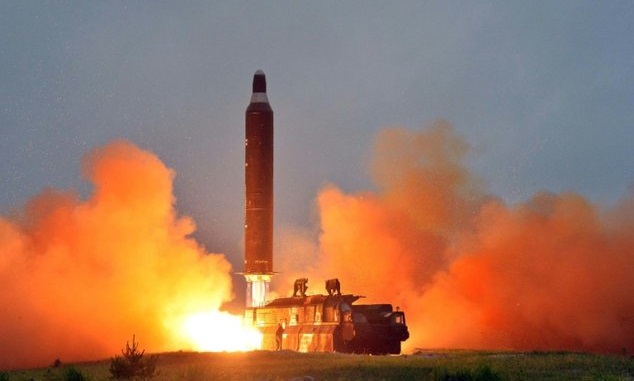
Beijing, China | AFP |
US president-elect Donald Trump has repeatedly called out China for doing too little to help stop North Korea’s nuclear programme, and on Monday he took to Twitter again to blast Beijing.
“China has been taking out massive amounts of money & wealth from the US in totally one-sided trade, but won’t help with North Korea,” he tweeted. “Nice!”
His comments come a day after North Korean leader Kim Jong-Un appeared to try to put pressure on Trump by announcing his country is in the “final stages” of developing an intercontinental ballistic missile (ICBM).
“North Korea just stated that it is in the final stages of developing a nuclear weapon capable of reaching parts of the US,” Trump also tweeted. “It won’t happen!”
But what leverage does the incoming American president really have over the hermetic nation? And what could Beijing do to stop it? Here are five questions on the China-North Korea relationship.
– Why is the North obsessed with nuclear weapons?
Pyongyang is still technically at war with the US after the Korean War of 1950-53 ended in an armistice rather than a peace treaty.
The North Korean leadership has built its claim to domestic legitimacy on military might and says a credible nuclear deterrent is critical to the nation’s survival, arguing it is under constant threat from an aggressive United States.
Although it has regularly threatened neighbouring South Korea, its main priority is developing an effective strike threat against the US mainland.
– How does China fit in?
China is North Korea’s only ally, its main diplomatic protector, and its economic lifeline.
The two countries’ Communist parties are linked by ideology, sympathy, and decades of history, with Chinese forces’ intervention decisive in saving the North from being overrun during the Korean War.
Beijing sent vast numbers of soldiers to the peninsula, with Western historians estimating 400,000 died, and Chinese sources settling on a figure of about 180,000.
Mao Zedong described the neighbours as being as close as “lips and teeth”.
Beijing’s nightmare scenario is that if the Pyongyang regime collapses, millions of hungry North Koreans might flood over its border — and the US-allied South would take over, meaning American troops could be stationed right on the Chinese border.
– Are Beijing-Pyongyang ties weakening?
Beijing regularly says it “firmly opposes” the North’s nuclear tests and calls for denuclearisation of the Korean peninsula.
Following Trump’s remarks, on Tuesday a Chinese foreign ministry spokesman again declared it would “stay committed to denuclearisation” on the peninsula.
“We hope that relevant parties would refrain from words and deeds that will lead to the escalation of tension,” Geng Shuang told reporters.
China sees Kim Jong-un’s energetic pursuit of a nuclear programme as a source of instability, and consistently calls for the revival of six-party talks to find a solution.
But it has resisted targeting the country’s fragile economy for fear of provoking an implosion.
Even so its patience with Kim is running thin and he has not visited China since taking power — a possible sign of the Chinese Communist Party rulers’ displeasure with the young leader.
– Could Beijing stop Pyongyang?
It is not clear whether China could rein in the North even if it wanted to.
Beijing has ensured that past UN Security Council resolutions on sanctions against Pyongyang have included humanitarian exemptions, and has continued to purchase huge amounts of North Korean coal — $101 million worth in October alone — a crucial source of foreign exchange for Pyongyang.
But the latest resolution, passed in December, had no such clause and Beijing announced it would suspend purchases of coal from the North — for three weeks to December 31.
– What leverage does the US have?
Not much — it has been unable to influence China’s North Korea policy for years.
Washington has long pursued a policy of “strategic patience” — essentially a refusal to engage in any significant dialogue unless Pyongyang made some tangible commitment to denuclearisation.
And impeachment of South Korea’s President Park Geun-Hye — a hardliner on Pyongyang — could result in a more pro-engagement leader taking office, undermining Washington’s efforts to pressure the North.
Trump has suggested that the US’ longstanding One-China policy could be upended if Beijing does not do more to pressure Pyongyang to abandon its nuclear weapons programme.
 The Independent Uganda: You get the Truth we Pay the Price
The Independent Uganda: You get the Truth we Pay the Price


